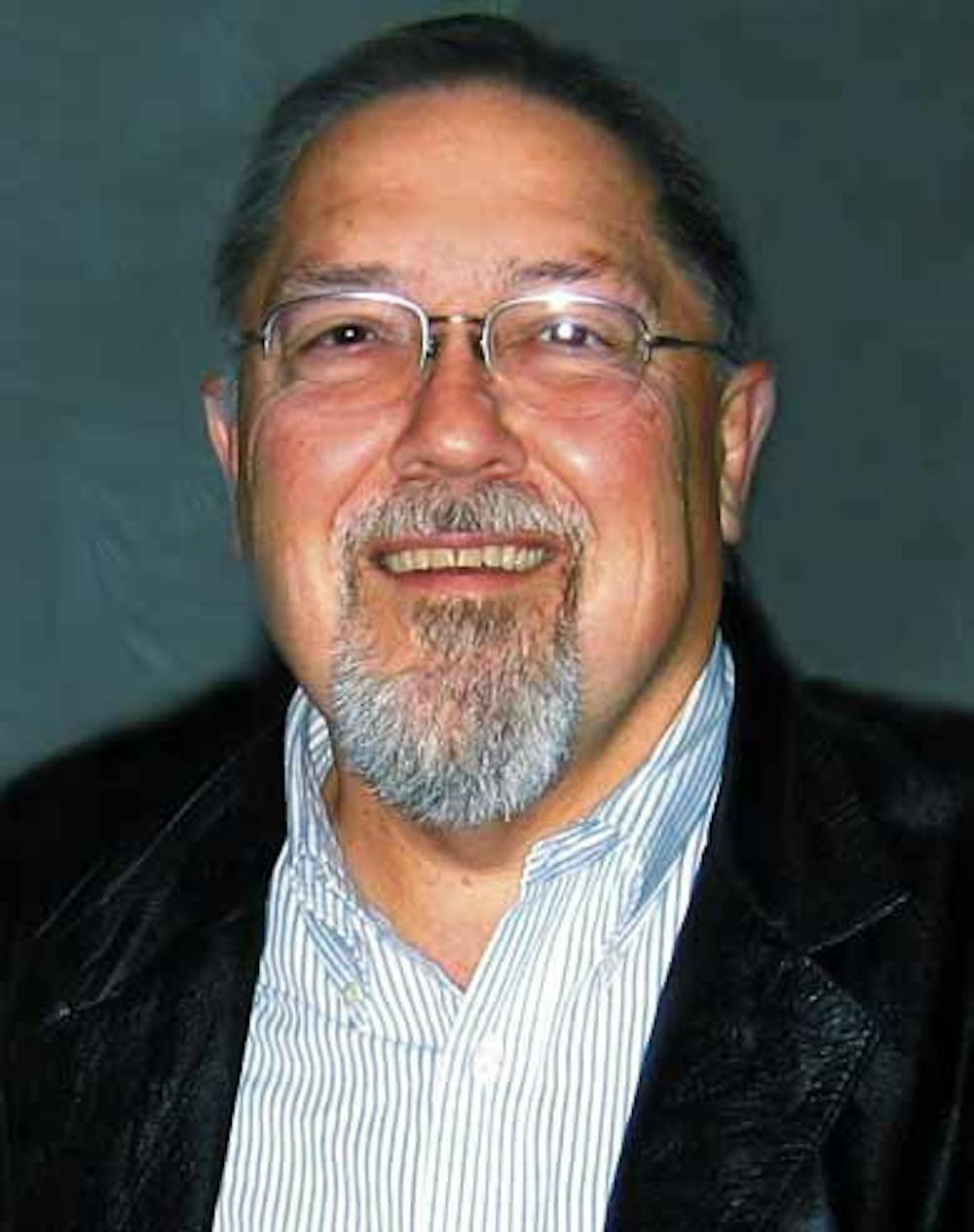by Jeremy Hunt
Daily Lobo
Alumnus Michael Mares talked to 20 faculty members Thursday about his vision for the College of Arts and Sciences if he is chosen
as dean.
Mares got his bachelor's degree from UNM, his master's from Kansas State University-Fort Hays and his doctorate from the University of
Get content from The Daily Lobo delivered to your inbox
Texas-Austin.
He said he worked as a laborer to pay for school as an undergraduate and is grateful to UNM for giving him an opportunity to go to college when it didn't seem like an option.
Mares was director of the Oklahoma Museum of Natural History at the University of Oklahoma from 1983 to 2003. During that time, he taught zoology and museum studies. He became the research coordinator for the museum in 2003 and has been the curator of mammals since 1985.
Mares said he is interested in returning to UNM because he is from Albuquerque. He said he wants to be dean of the college because of the intellectual resources faculty and students have.
Mares said the college is the heart of the University. It is the core college for education in New Mexico, he said.
The Daily Lobo asked Mares questions about his experience and plans if chosen for the
position.
Daily Lobo: What experience do you have that prepares you to run a college as large and diverse as the College of Arts and Sciences?
Michael Mares: I've had a lot of experience in higher levels of board activity. For example, I was on the board of directors of the Fulbright Commission for many years. I was an adviser to the Smithsonian Institution, which is a huge institution. I helped them do their strategic plan. I built a very large museum that had over 100 staff members, including faculty, and have been active in fundraising and managing people and programs. I worked with the College of Liberal Studies at the University of Oklahoma to develop a Web-based master's degree in
museum studies.
DL: What is the biggest challenge facing the College of Arts and Sciences?
MM: The ones you hear about all the time is the minority representation among the faculty, the graduation rates of the
students and funding for the department. Those seem to pop up over and over. The funding is something that has to be dealt with strategically at higher levels. The minority representation is something that has a solution, and I think people can work together to make the numbers in the college much better. The quality of the faculty is very, very high, so I don't think that's a problem. But morale might be low because of some of these other problems that might intervene.
DL: What would you do to integrate the departments and promote interdisciplinary study?
MM: I teach in interdisciplinary studies, so I'm very familiar with that. I developed a master's program in interdisciplinary studies, and I'm on the executive committee of the College of Liberal Studies at OU, so I have a lot of experience with that. I'm a great believer in interdisciplinary studies. As far as integrating the faculty, I would work to develop a plan and actually make it be implemented and have measurable changes occur. A lot of the time, universities will talk about wanting change, but they don't really want change. Change is difficult. If I were to come as dean, things would change.
DL: How will you ensure the success and satisfaction of faculty, staff and students under your leadership?
MM: I respect the faculty. I respect the students. That's important. I'm entrepreneurial myself, so I support good ideas. I'm always looking for good ideas. I was a student here myself, so I know what the college offers. I think that a student should be able to come to this college and get a degree and have that degree stand shoulder to shoulder with any university in the nation. If we're not doing that, then we need to get better in certain departments, and we need to get better at what we're doing. There are some brilliant people at this University, and there are some excellent faculty. That's your bedrock upon which you build. I think the graduation rates have problems, and those are clearly going to have be dealt with not just at a dean level, but at the provost level and the presidential level. Perhaps even at a level above that as you try to get funding for programs that keep students enrolled. I was a ditch digger to be able to go to school, and I graduated in four years because I didn't want to dig any more ditches. Nowadays, kids take longer. Sometimes they get left behind, and sometimes they put in time, but they don't have anything to show for it. That shouldn't happen.
DL: How would you balance the needs of undergraduates with the needs of graduate students?
MM: I don't see them as very different. Graduate students often work with undergraduates. I know I got into the business I'm in - studying mammals and stuff - because I palled around with the graduate students. I think that in a major research university, your undergraduates and your graduate students should work together and do very well. I would do everything I could to make sure they succeed in what they're doing.






